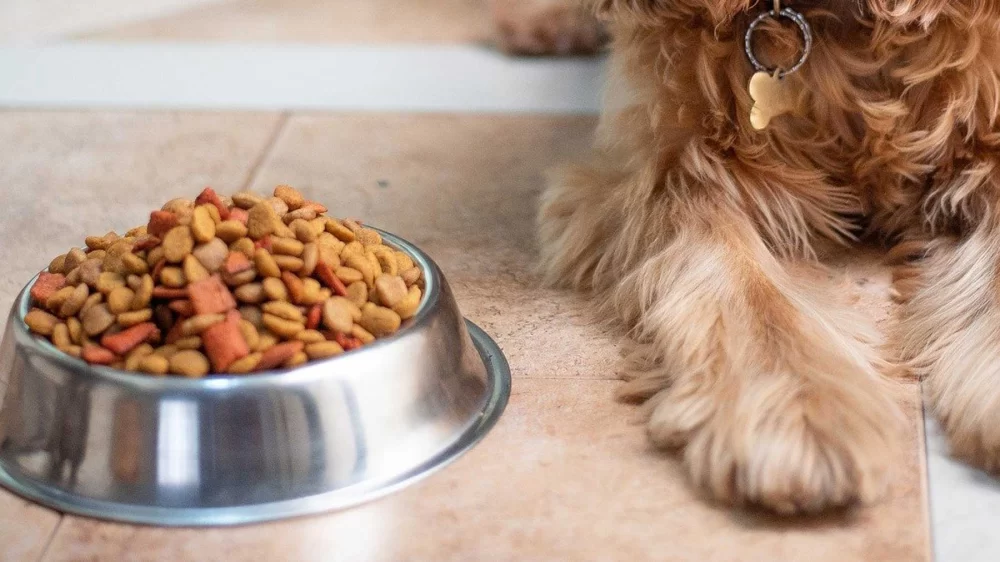Why More Pet Owners Are Choosing Home-Cooked Meals
As a pet owner, I understand the joy of feeding your furry friend the best food possible. Over the years, I’ve noticed that more pet owners are turning to home-cooked meals as a way to ensure their pets are getting the highest quality of food. But what does it take to create a nutritious, balanced diet for your pet at home? In this article, I’ll share what I’ve learned about preparing home-cooked meals for pets and what you need to keep in mind to ensure that your dog or cat stays healthy and happy.
The Benefits of Home-Cooked Meals for Pets
Home-cooked meals allow you to have complete control over the ingredients in your pet's diet. As a result, you can avoid the preservatives, fillers, and artificial ingredients found in some commercial pet foods. Additionally, home-cooked meals allow you to cater to your pet’s specific dietary needs. For example, if your dog has food allergies or sensitivities, preparing food at home can help you eliminate the offending ingredients from their diet.
Another significant advantage is that you can adjust the portions and nutrient balance based on your pet’s age, weight, and activity level. Some pets, like puppies or active dogs, require more protein and fats, while older pets may need more fiber or fewer calories to maintain a healthy weight.
Understanding Pet Nutrition
Before diving into cooking for your pet, it’s essential to understand pet nutrition. Pets require a balanced diet that includes protein, carbohydrates, fats, vitamins, and minerals. Unlike humans, pets have specific nutritional needs that may differ from one breed or age group to another. For instance, while a dog might thrive on a high-protein diet, a cat requires more taurine, an essential amino acid found only in animal tissues.
In general, dogs and cats both require a healthy mix of the following nutrients:
- Protein: This is the building block for muscles and tissues. Dogs typically need 18-30% protein in their diet, while cats need even more, as they are obligate carnivores.
- Fat: Healthy fats provide energy and are necessary for skin and coat health. Fat also helps with the absorption of certain vitamins.
- Carbohydrates: While dogs can digest carbohydrates, they don’t require them as much as humans. Cats, on the other hand, require little to no carbs in their diet.
- Vitamins and minerals: These are critical for immune function, bone health, and other bodily processes.
What You Need to Know Before Cooking for Your Pet
Cooking for your pet is not as simple as tossing them a plate of leftovers from your dinner. You need to be mindful of several factors to ensure your pet’s meals are both nutritious and safe. Here are some essential considerations:
1. Consult Your Veterinarian
Before making any changes to your pet’s diet, it’s always a good idea to consult with your veterinarian. They can provide advice on portion sizes, dietary restrictions, and any specific nutritional needs your pet might have. For example, if your dog has kidney disease or diabetes, your vet will recommend a special diet tailored to their condition.
2. Avoid Toxic Foods
There are many foods that are safe for humans but harmful or even toxic to pets. Some common human foods that should never be fed to pets include:
- Chocolate
- Onions and garlic
- Grapes and raisins
- Avocado
- Alcohol
- Xylitol (a sugar substitute found in gum and other sweets)
Make sure to do thorough research or consult your vet before introducing new ingredients into your pet’s meals.
3. Portion Control
Overfeeding is a common issue when preparing meals at home for your pet. It can be tempting to give them extra treats, but it’s essential to maintain proper portion control. Too many calories can lead to obesity, which is linked to a host of health problems, including joint issues, diabetes, and heart disease. Your vet can help you determine the right amount of food for your pet based on their age, breed, weight, and activity level.
What to Include in Your Pet’s Home-Cooked Meals
Now that we’ve covered some of the basics, let’s talk about the ingredients that should be included in your pet’s meals. As with any diet, balance is key.
Protein Sources
High-quality protein should be the foundation of your pet’s meal. For dogs, consider options like chicken, turkey, beef, or lamb. For cats, you may want to stick to poultry, fish, and other meat-based proteins. If your pet is on a special diet, be sure to choose the appropriate protein for their specific health needs.
Carbohydrates
While carbohydrates are not a primary food source for pets, they can provide a valuable energy source. Healthy carbohydrate options include sweet potatoes, quinoa, and brown rice. These ingredients can be used in moderation to round out your pet’s meal.
Fats and Oils
Healthy fats are an essential part of your pet’s diet. Consider adding omega-3-rich oils, such as fish oil or flaxseed oil, to your pet’s meals for healthy skin, a shiny coat, and brain function.
Vegetables and Fruits
Some pets enjoy vegetables like carrots, peas, and spinach, while others might prefer fruits like blueberries or apples. However, always be mindful of what fruits and vegetables are safe for pets. For instance, grapes are toxic to dogs, and some fruits like cherries and peaches contain pits that can pose a choking hazard.
My Personal Experience: Cooking for My Pets
Over the years, I’ve made home-cooked meals for my dogs and cats, and the results have been nothing short of amazing. I’ve noticed that their energy levels have improved, their coats are shinier, and they seem to be in overall better health. One of the best things about cooking for your pet is knowing exactly what they are eating, and I always get a sense of pride when I prepare their meals.
One memorable story comes from when I made my dog, Max, a chicken and rice dinner for his birthday. Max had always been a picky eater, but he devoured the homemade meal in seconds, and it seemed to put a spring in his step the next day. His vet even commented on how much healthier he looked at his next check-up!
Final Thoughts
Cooking for your pet is an excellent way to ensure they get the most nutritious, safe, and wholesome food possible. It’s a rewarding experience that allows you to bond with your furry friend while keeping them healthy. By consulting with your veterinarian, understanding your pet’s nutritional needs, and carefully selecting safe ingredients, you can create delicious and nourishing meals that will keep your pet happy for years to come. So, why not give it a try and see the difference it makes in your pet’s life?












